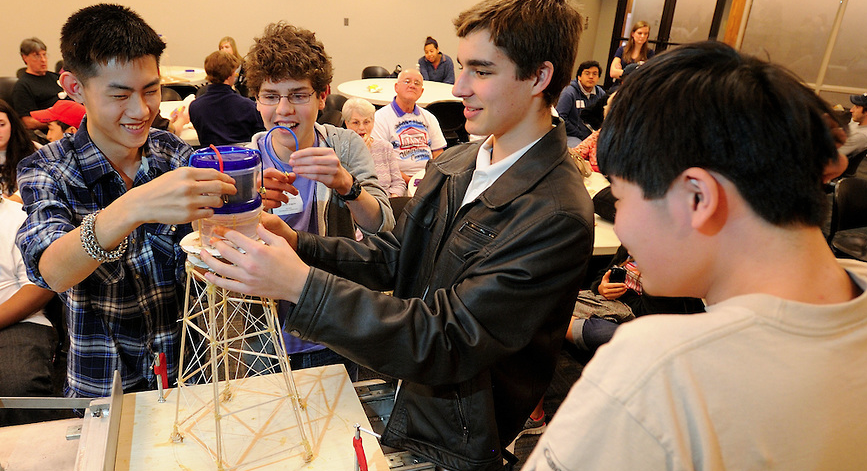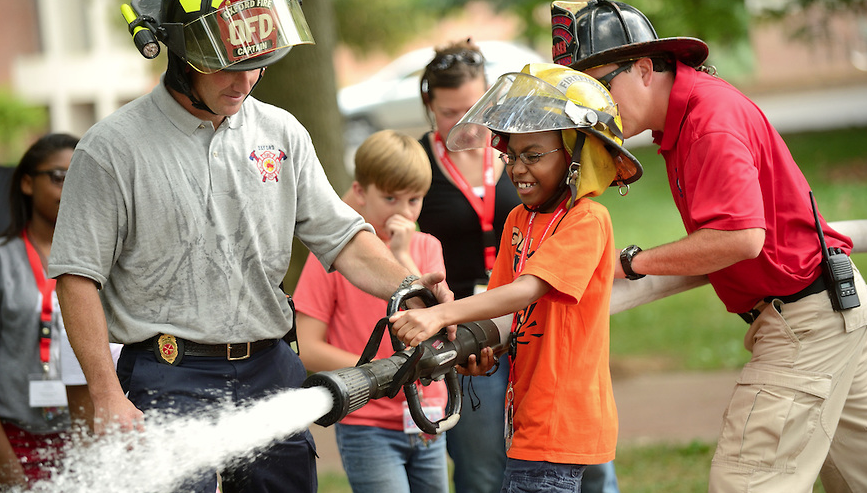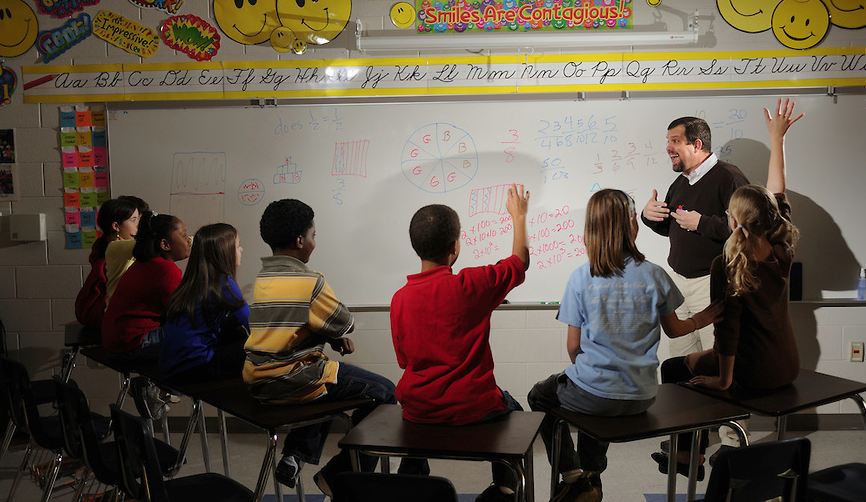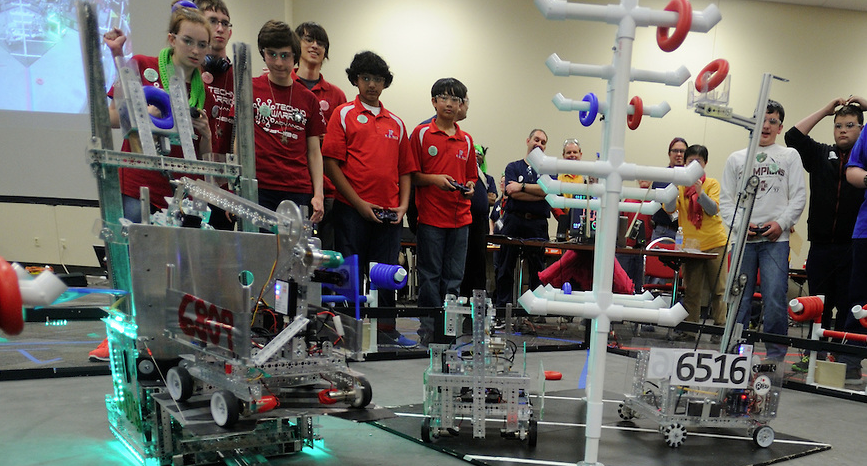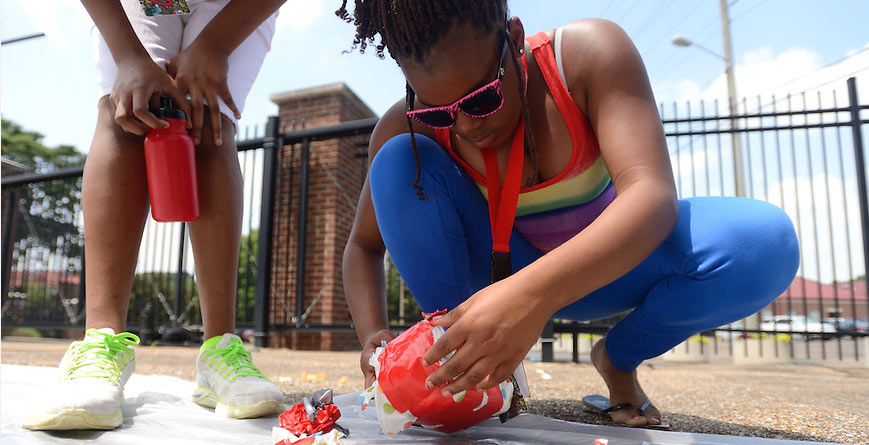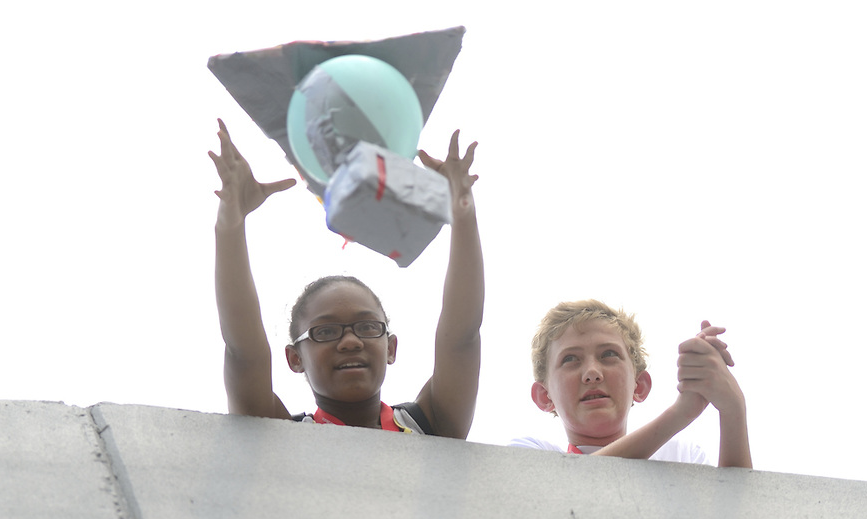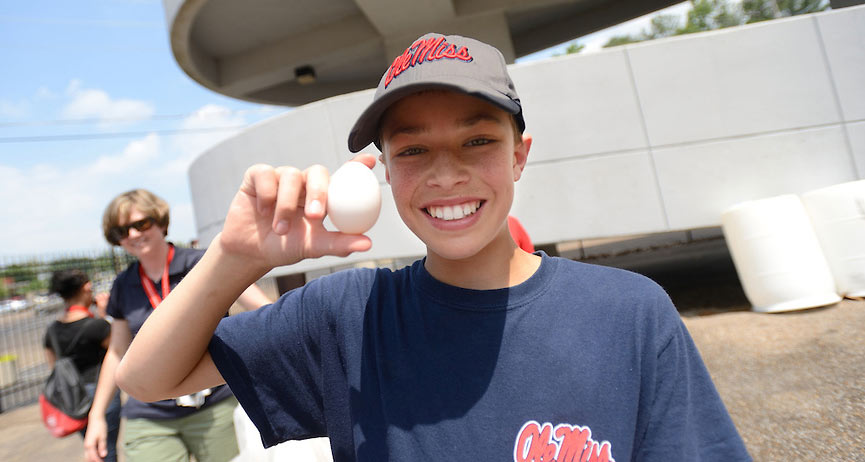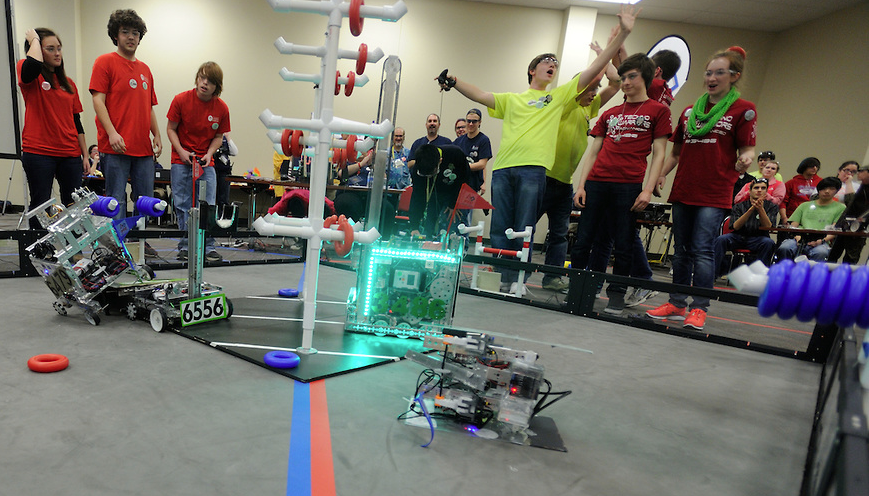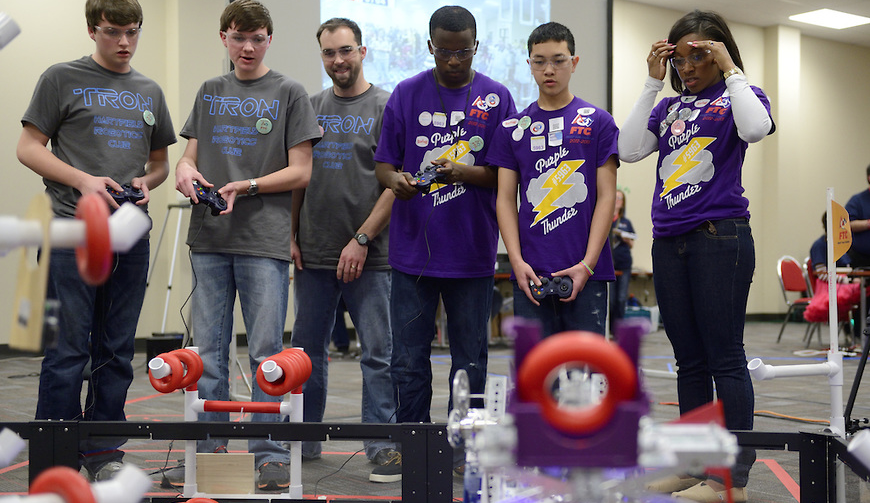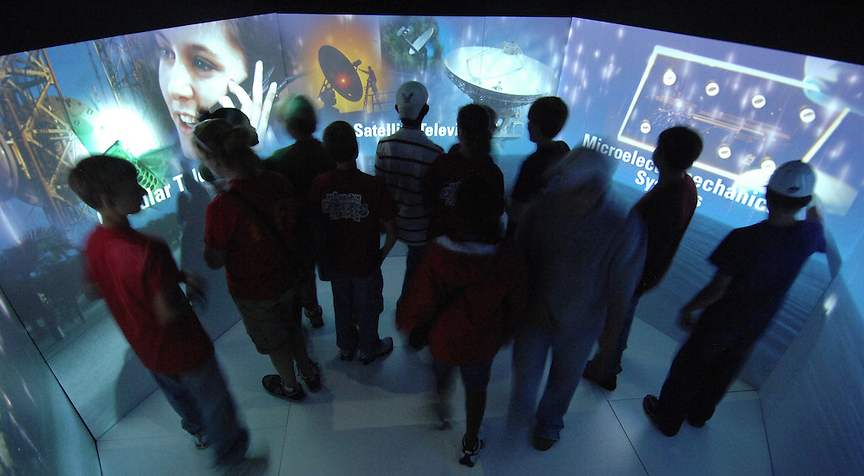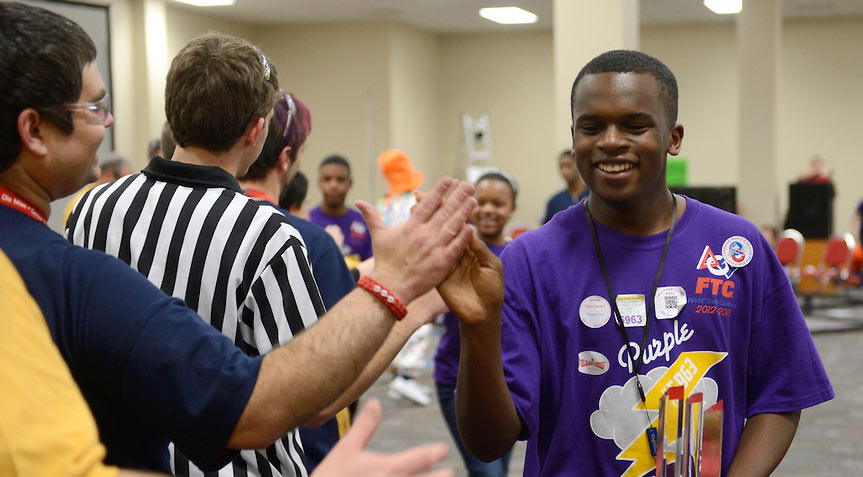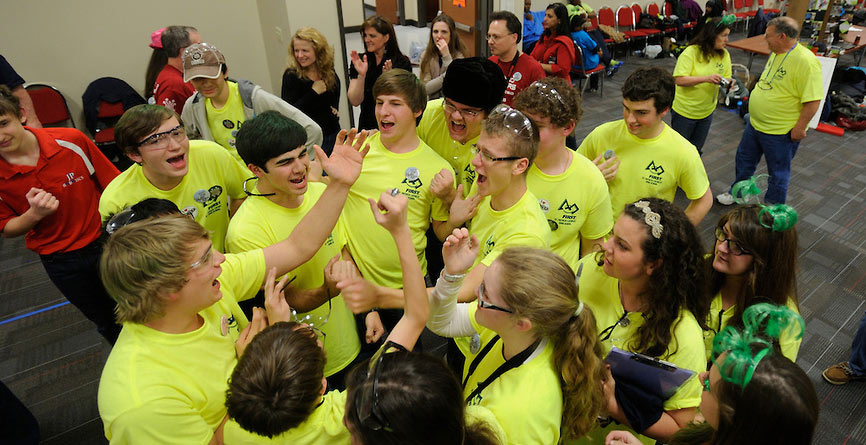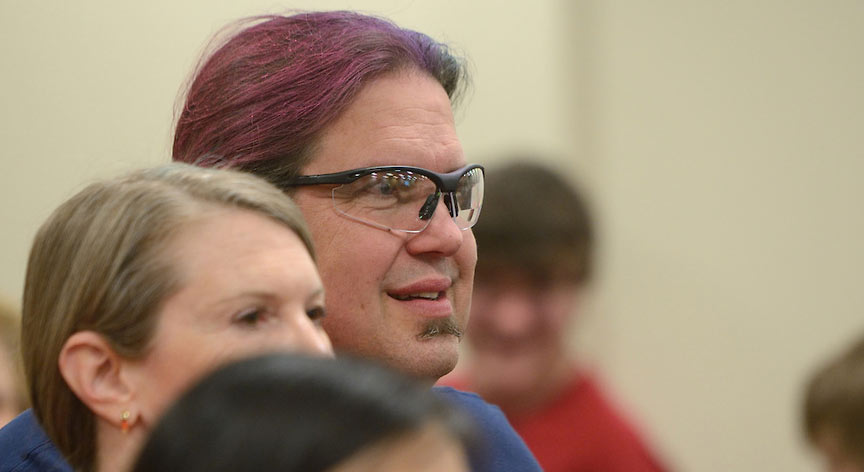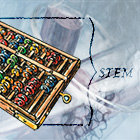

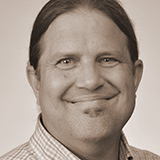
John O’Haver
Building the workforce of tomorrow begins with teaching children how to prepare for mathematics and science careers. With that goal in mind, the UM Center for Mathematics and Science Education, or CMSE, is developing ways to help improve mathematics and science education in Mississippi K-12 schools.
That mission includes educational development, professional development, research and science, technology, engineering and mathematics outreach.
Launched in December 2006 with a grant from the Robert M. Hearin Support Foundation, CMSE was conceived by Associate Provost Maurice Eftink and John O’Haver, CMSE’s director, who taught high school for 12 years before becoming a chemical engineer. CMSE started small but with a big vision.
“We were committed to improving mathematics and science education and there were many items on the agenda,” said Alice Steimle, associate director. “We began organizing our first round of camps, entitled MathCamp, focused on inspiring middle school students to become mathematical problem solvers.”
The CMSE’s summer MathCamps have continued and grown. Elementary and middle school teachers may nominate two campers who they believe would most benefit from the added academic motivation the camp delivers. Many campers experience a 180-degree change in their attitudes regarding math, and some of the center’s very first campers have even returned to the university to major in STEM fields.
Watching the students experience a change of heart about math is thrilling, O’Haver said. “We get letters from parents of kids who go to MathCamp who say, ‘you turned my kid around—before they hated math, and now they love it and they’re doing well,'” he said.
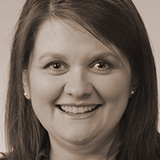
Alice Steimle
CMSE also coordinates an engineering and robotics summer camp for high school students, which was added in 2009 through a partnership with the UM Center for Manufacturing Excellence and continues with new sponsors/partnerships each summer. Summer 2013 featured an Engineering and Wind Energy Camp through a partnership with the National Center for Physical Acoustics and a Robotics Camp created specifically for FIRST Tech Challenge team members competing in the Mississippi FTC Championship.
O’Haver and Steimle have spearheaded many additional outreach and professional development campaigns. The CMSE hosts or co-hosts five Mississippi student competitions: MATHCOUNTS, for middle school students; the Real World Design Challenge, a national engineering competition for grades 9-12; and the annual engineering and trebuchet competitions, both co-hosted by the School of Engineering.
The events aim to engage students in fun, challenging activities that enliven what they have learned in the classroom. Recent competition participants were charged with finding the volume of one of the columns on the front of the Lyceum using only a pencil and paper or with piloting robots through tricky obstacle courses that required focusing on team communication. Free or requiring only a nominal participation fee, the competitions are inclusive for all students motivated to enter.
On campus, the center has worked with the Department of Mathematics to redesign and teach its mathematics content courses for elementary education majors and secondary mathematics education majors. Additionally, CMSE awards fellowships to graduate students from the School of Education who are pursuing careers in STEM education and also provides scholarships for undergraduates who may be considering a similar path. Graduate fellows work directly with the CMSE in STEM education research and STEM outreach.
“We try to provide them with experiences that are especially enriching for those who are pursuing Ph.D.s, who are going to be faculty members,” O’Haver said. “They will have a much clearer idea of what it means to be a faculty member, to be prepared to write grants, to participate in interdisciplinary activities. It also particularly helps the undergraduates. We give them experiences where we model correct pedagogical approaches and research-based pedagogy so that they can realize, ‘I can be a better teacher by doing this.'”
The CMSE recently received funding from the National Science Foundation’s Robert Noyce Teacher Scholarship Program that will provide 10 additional scholarships of up to $20,000 per year to cover education expenses for those who want to become STEM educators. Scholarship recipients must agree to teach two years in a high-needs school district for each year of Noyce funding they receive.
“We are recruiting students seeking dual degrees in STEM and STEM education or STEM majors who are considering alternate route teaching certification,” Steimle said. “We are also recruiting STEM professionals—those who have worked as engineers or other science professionals in STEM careers and are ready to return to college to obtain their teaching credentials.”
Another major CMSE division is professional development. PrIME 2.0, a two-week-long summer institute, allows fourth- through eighth-grade teachers to explore new pedagogical methods. Whether they’ve been in the classroom one year or 30, teachers participating in CMSE’s PrIME 2.0 share two key traits: a passionate desire to see their students succeed and a willingness to consider a hands-on, problem-based approach to teaching mathematics.
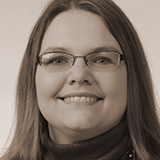
Julie James
“All the mathematical tasks presented to teachers during the summer institute are tasks that can be taken back to their classrooms and implemented with students,” said Julie James, CMSE’s professional development coordinator. “The pedagogical discussions revolve around how to teach mathematics through problem-solving using research-based instructional strategies.”
Teachers learn new ways to approach and understand content aligned with the Common Core State Standards for Mathematics (CCSSM), which Mississippi is implementing. PrIME 2.0 offers four segments to meet different grade standards, focusing on algebra, geometry, measurement and probability/statistics. Teachers who return for a fourth year of the institute qualify for training that helps them to become informal mentor-coaches within their schools, prepared to share their knowledge and experiences with other teachers.
Recent funding from the Mississippi Department of Education through the Mathematics and Science Partnership grant will allow CMSE to expand its professional development efforts. The Developing Excellence in Education through Professional (DEEP) Learning Communities Project aims to provide professional development designed to enhance the understanding and implementation of the CCSSM .Through participation in the DEEP Learning Communities Project, teachers in grades 4 through 8 will develop a deeper understanding of the mathematics they teach.
At the heart of CMSE’s mission is a desire to engage K-12 students and their teachers in a deeper and more inspired understanding of science and mathematics, O’Haver said. Both he and Steimle agree that many students have negative experiences with math and science and associate those disciplines with rote memorization. As such, they’ve missed opportunities to truly embrace the beauty of the sciences.
“One of the failures of American mathematics and science education is that we have traditionally taught students it’s all about memorizing and there’s only one way to do it, and honestly, both of those things are wrong,” O’Haver said. “Ultimately it’s about solving problems and thinking creatively.”
The center’s administrators and staff hope to illuminate those creative aspects of math and science.
“We want to provide opportunities where a student can see that math and science can be engaging and fun, inspiring them to continue to explore their possibilities in STEM,” Steimle said.

